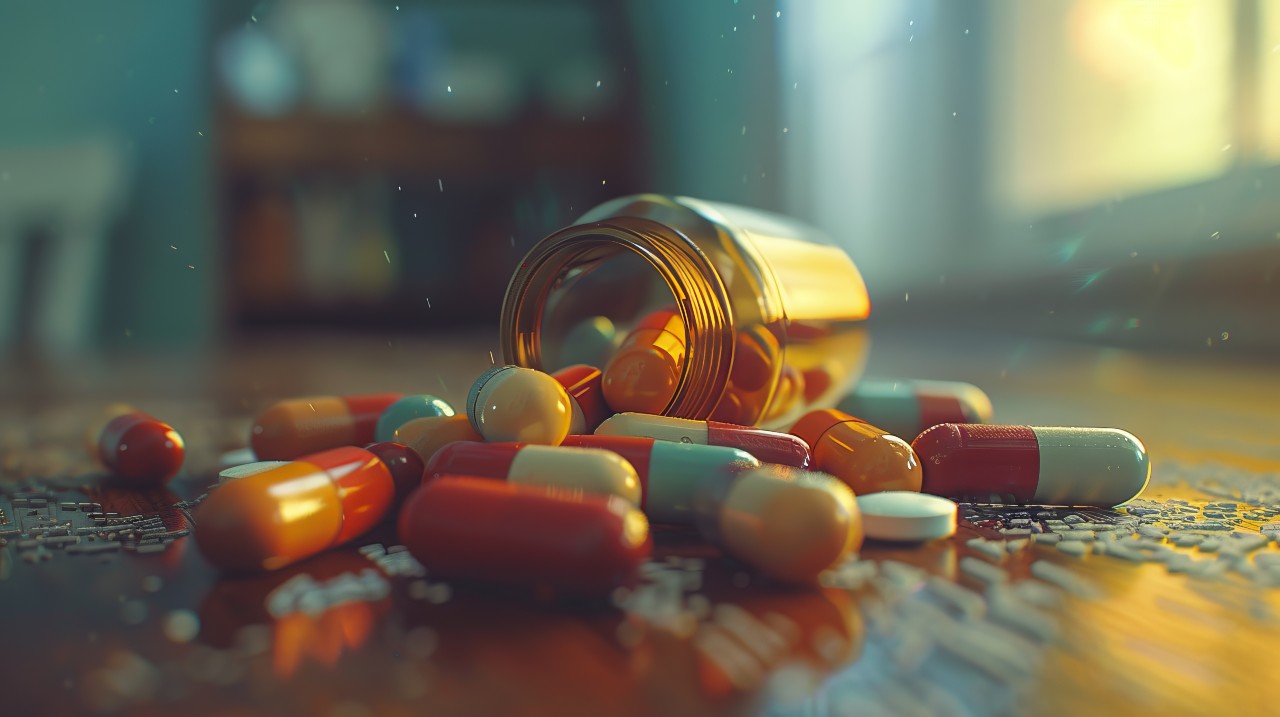Beyond Pills: Unleashing the Brain's Healing Power with TMS for Depression
Understanding Depression
Depression is more than just feeling sad or down; it’s a complex mental health condition that affects millions worldwide. In fact, the latest data from the National Institute of Mental Health found that over eight percent of all adults in the United States have had at least one major depressive episode while the statistics for those who have had an episode severely impacting their lives is around 14.5 million. This number naturally increases when you add in depressive episodes worldwide. Depression is a major health concern not only here in America but globally.
For some, traditional treatments like antidepressant medication or psychotherapy may not provide the relief they desperately seek. Many who receive a major depressive disorder diagnosis go on to try multiple anti-depressant medications for an appropriate duration and dosage only to find their symptoms remain leaving them at a crossroads. They don’t know where to turn or what to do to help alleviate their symptoms in spite of doing following all the recommended protocols and making lifestyle adjustments.
This is where alternative treatments like Transcranial Magnetic Stimulation (TMS) come into play, offering new hope for those struggling with treatment-resistant depression. Goolsby and Associates is proud to offer TMS for clients in the North Georgia region. We understand the power of this FDA approved treatment method and believe it may be the answer you have been searching for to help your treatment resistant major depressive disorder.

The Limitations of Traditional Treatments
While antidepressant medications and psychotherapy have been the cornerstone of depression treatment for decades, they're not always effective for everyone. Antidepressants, such as SSRIs and SNRIs, work by altering neurotransmitter levels in the brain, but their effectiveness can vary from person to person. Additionally, they often come with a range of side effects, from weight gain to sexual dysfunction, which can further impact a person's quality of life.
Psychotherapy, on the other hand, aims to address the underlying causes of depression through talking therapy. While it can be incredibly beneficial for many individuals, it may not provide sufficient relief for those with severe or treatment-resistant depression.
Enter Transcranial Magnetic Stimulation (TMS)
Transcranial Magnetic Stimulation (TMS) is a non-invasive procedure that uses magnetic fields to stimulate nerve cells in the brain. Unlike electroconvulsive therapy (ECT), which requires anesthesia and can cause memory loss, TMS is performed while the patient is awake and alert, with minimal side effects. Sessions vary in length, generally between 5 to 30 minutes dependent upon the individual needs of the patient, and are conducted in our offices to ensure efficacy and patient satisfaction.
How TMS Works
During a TMS session, an electromagnetic coil is placed against the scalp near the forehead. The coil delivers magnetic pulses to the targeted areas of the brain involved in mood regulation, such as the prefrontal cortex. These pulses stimulate nerve cells, promoting the release of neurotransmitters like serotonin and dopamine, which are known to play a crucial role in mood regulation.
Areas of the brain associated with depression often show low activity. You can think of TMS as a way to awaken these areas allowing for new neural pathways to form assisting with the lessening of depression symptoms.

Why TMS Is a Game-Changer for Treatment-Resistant Depression
For individuals who have not found relief with traditional treatments, TMS offers new hope. Studies have shown that TMS can be highly effective in reducing depressive symptoms in those with treatment-resistant depression, with minimal side effects. In fact, some research suggests that TMS may even be more effective than antidepressant medications for certain individuals.
The Advantages of TMS
One of the key advantages of TMS is its targeted approach. Unlike medications, which affect the entire brain and can lead to systemic side effects, TMS specifically targets the regions of the brain implicated in depression. This targeted approach not only minimizes side effects but also allows for personalized treatment based on each individual's unique brain anatomy and neurochemistry.
Additionally, TMS is non-invasive and requires no anesthesia and no down time, making it a safe and convenient option for many individuals. Treatment sessions are typically conducted in an outpatient setting and last between 5 to 30 minutes, allowing patients to resume their daily activities immediately afterward.
Combining TMS with Traditional Treatments
While TMS shows promise as a standalone treatment for depression, it can also be used in conjunction with traditional treatments like antidepressant medication and psychotherapy. In fact, some studies suggest that combining TMS with antidepressants may enhance treatment response rates, offering a more comprehensive approach to managing depression.
The Future of Depression Treatment
As our understanding of the brain continues to evolve, so too will our treatment options for depression. Transcranial Magnetic Stimulation represents a significant advancement in the field of psychiatry, offering new hope for those who have not responded to traditional treatments. While more research is needed to fully understand its long-term effects and optimal treatment protocols, TMS holds immense promise as a safe, effective, and non-invasive treatment for depression.
Conclusion
Depression is a formidable adversary with its twists and turns and may even feel insurmountable at times. However, it's not something that individuals have to face alone. With treatments like Transcranial Magnetic Stimulation and its targeted precision, minimal side effects, and potential for profound transformation, TMS offers hope for those who have not found relief with traditional medications or therapy. By harnessing the power of targeted brain stimulation, TMS offers a beacon of hope for those navigating the dark waters of treatment-resistant depression.
TMS stands as a testament to the power of innovation and resilience. While further research is needed to elucidate the long-term efficacy and optimal treatment protocols of TMS, its emergence heralds a new era of hope and healing for those navigating the labyrinthine depths of treatment-resistant depression.
If you are interested in learning more about this treatment approach to depression, covered by most insurance plans, please reach out to Goolsby and Associates. We can introduce you to this treatment option with an initial assessment and determine if it is something that might work for you.
